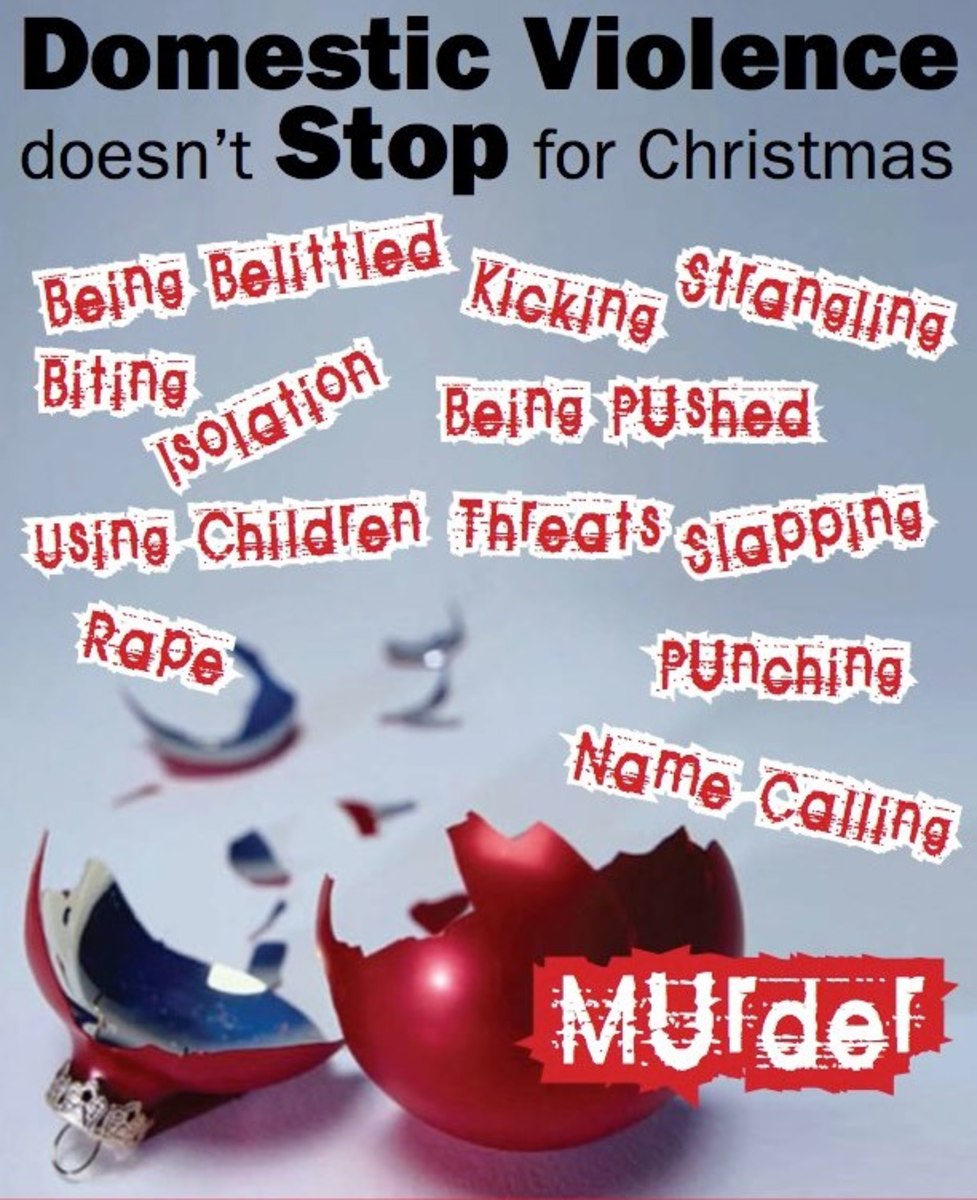dealing with daily abuse.
What is abuse? How do you cope?
Dealing with abuse is a horrible and traumatic issue to deal with especially on a basis where it becomes a daily activity. As a rule of thumb you should always remember that you should not have to deal with abuse of any kind and you should know that you deserve better. No matter what kind of abuse you are suffering with you should keep in mind that best thing to do is get away from it. Depending on the amount and type of abuse it can leave severe emotional scars and even cause mental issues of many kinds and sometimes causes a person to start a pattern of abuse themselves that can easily continue for generations. Abuse is like a bad virus once it starts it only gets worse and sometimes will end up in death. There are many types of abuse that affect men, women, children and sadly enough even the elderly. Some of the most common forms of abuse are physical, sexual, emotional and phycological, financial and economic, child and elderly abuse and also included in the abuse category is drug and/or alcohol abuse, so as you can see some types of abuse can be self inflicted. Abuse is defined by:
- To use wrongly or improperly; misuse: abuse alcohol; abuse a privilege.
- To hurt or injure by maltreatment; ill-use.
- To force sexual activity on; rape or molest.
- To assail with contemptuous, coarse, or insulting words; revile.
- Obsolete To deceive or trick.
- Improper use or handling; misuse: abuse of authority; drug abuse.
- Physical maltreatment: spousal abuse.
One important factor of abuse is having the knowledge of the signs, contributing factors and knowing what to do. Sometimes this can be tricky as the sign of physical abuse may not even surface for months even years in some cases. First you should consider how you feel. Ask yourself these questions. Are you afraid of your partner? Do you avoid particular conversations or topics because you don't want to anger your partner? Do you feel that you don't do anything right in their eyes? Do you feel you are helpless? If you answered yes to these questions then you may be in danger of being in an abusive relationship. Next you need to evaluate you partners statements and actions. Does your partner criticize, humiliate, or belittle you either in public or behind closed doors? Does that person ignore or put down you opinions or accomplishments? Do you get blamed for their behavior? Do you feel that they only see you as a sex object or property possession? Does this person have a bad temper? Do they threaten you or threaten your family? Do they threaten suicide because you try to leave? Does this person force sex or destroy your personal belongings? Is this person excessively jealous? Are you not allowed your own time? Do they limit your access to necessities such as money, phone, or car? Are you constantly checked up on while shopping, visiting family, at work or school? If you answered yes to any of these you should know that these are all signs or emotional, physical, economic, and sexual abuse. The question at hand is how do you live with it? As I stated before you should not have to and it is dangerous to do so. However if you are going to make the choice to stay around then you need to do everything possible to correct the problem. There are many options and treatments available that may help you along the way. If the problem is solely isolated to when a person is under the influence of alcohol or other drugs the best option would be to try to eliminate the contributing factor. You may be able to this easily by going to NA or AA meetings and seeing a couples therapist. If the addiction is very bad a lot more may be needed and considering in house treatment and intense mental therapy may be your only option if there is one at all. It is entirely up to the person who is dealing with the addiction. It may be wise for you to try to get a psychological evaluation from a psychologist. If you have an evaluation done you may receive a better understanding of what the problem may be, what is causing the problem possibly a contributing factor of past abuse, what are the treatment options, and by your partners amount of cooperation with you, you may even be able to tell if you should even waste your time. If your partner is refusing to get help or wants to lie on the evaluation then this may be your indication to give up and move on because it is apparent that this person does not want help and the thought that it will get increasingly worse should also help you in that decision. It is tough to walk away from someone you love however if your own safety is at risk you really may need to consider it. If they love you enough whether it is Mom or Dad, sister or brother, fiance' or husband even your child they should at least try the options or compromise with your offer to handle the situation successfully and make life more enjoyable. If you are still going to stay in a situation especially if the person is violent or sexually abusive I strongly recommend doing these things. And I also strongly encourage you not to have a child stuck in the situation with you by doing so you may be hurting yourself and them not only when child welfare steps in but also by them witnessing the abuse can be damaging and hurtful to a child.
- Keep an emergency bag packed and out of sight or even keep at a friend or families house.
- Keep your cell phone turned on and with you at all times.
- Have a landline in you home with both a cordless phone and a desk even a phone plugged into every room including the bathrooms.
- Have an escape route for you and your children.
- Keep a spare car key hidden at a neighbors or somewhere only you know about
- Keep all available hotline, shelter and safety numbers on hand in case you need to call.
- If you call the cops make sure they are arrested. If you call and then do nothing the abuser may become even more angered and possibly kill you after the cops leave.
- Go to a support group even if it means doing so online. While going through abuse on a daily basis you need someone to talk to to keep your sanity.
There is also abuse that happens to the elderly and children of all ages. In these cases you should not under any circumstances stand by and allow this to occur on a daily basis. Contacting the proper authorities is the only right thing to do! If you are a teenager who is witnessing this happening to your friend or it is happening to you. It may seem like the wrong thing to do however you need to talk to an adult not involved and get help fast. Friends may seem to be upset or hate you at the thought of even mentioning it to authorities so discussing it with them may not be an option. You personally need to weigh out that decision because you know your friend. Making an anonymous report may be an option if reporting a neighbor or loved one. Here is list of sites and hotlines that may give even more information to you about abuse and how to cope.
- Resource books
- Battered Wives. Del Martin. Volcano Press, 1981
- The Verbally Abusive Relationship: How to Recognize It and How to Respond. Patricia Evans. Adams Media Corporation, 1996
- Why Does He Do That? Lundy Bancroft. Berkeley Trade, 2003
- Saving Beauty from the Beast. Vicki Crompton & Ellen Zelda Kessner. Little, Brown, 2003But I Love Him: Protecting Your Teen Daughter from Controlling, Abusive Dating Relationships. Jill Murray. Regan Books, 2001
- In Love and In Danger. Barrie Levy. Seal Press, 1998
- www.loveisrespect.org is a site for teen dating and teen abuse
- 1-800-799-safe is the national doestic violence hotline
- www.childmolestationprevention.org
- www.childhelp.org
- www.CARIE.org for reporting elderly abuse
- www.suicidehotlines.com to locate a local assistance for suicide prevention
- www.ndvh.org national domestic violence hotline
- www.alcoholics-anonymous.org
- www.na.org is for narcotics anonymous









